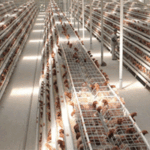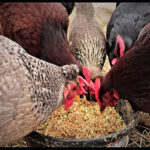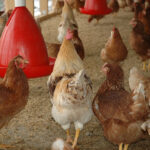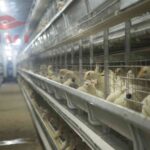Unleashing the Potential of Ground-Raised Broilers: A Guide to Pasture-Based Poultry Farming
**Unleashing the Potential of Ground-Raised Broilers: A Guide to Pasture-Based Poultry Farming**
In recent years, there has been a growing trend towards pasture-based or ground-raised broiler farming, a system that prioritizes animal welfare, environmental sustainability, and high-quality meat production. This article explores the key principles and benefits of ground-raised broiler farming, shedding light on why this method is gaining popularity among both farmers and consumers.
**Principles of Ground-Raised Broiler Farming:**
1. **Free-Range Environment:**
– Ground-raised broilers are given access to open spaces, allowing them to roam freely and engage in natural behaviors like scratching, pecking, and dust-bathing.
– Access to fresh air, sunlight, and natural forage contributes to the overall well-being of the broilers.
2. **Rotational Grazing:**
– Farmers often implement rotational grazing systems where broilers are moved to fresh pasture regularly.
– This practice prevents overgrazing, allows the land to regenerate, and ensures a continuous supply of fresh forage for the broilers.
3. **Natural Diet:**
– Broilers raised on the ground have the opportunity to forage for insects, seeds, and grass, supplementing their diet with natural elements.
– This natural diet enhances the flavor and nutritional profile of the meat.
4. **Low-Stress Environment:**
– Ground-raised broilers experience lower stress levels compared to those raised in conventional systems.
– The freedom to move and express natural behaviors contributes to reduced stress and healthier birds.
**Benefits of Ground-Raised Broiler Farming:**
1. **Improved Animal Welfare:**
– Pasture-based systems prioritize the welfare of broilers by providing a more natural and spacious environment.
– The opportunity to engage in natural behaviors contributes to the mental and physical well-being of the birds.
2. **Enhanced Meat Quality:**
– Broilers raised on pasture exhibit improved meat quality, characterized by better flavor, texture, and nutritional content.
– The varied diet and exercise contribute to the development of leaner and more flavorful meat.
3. **Environmental Sustainability:**
– Rotational grazing and pasture management practices enhance soil health and prevent environmental degradation.
– Ground-raised broiler farming aligns with sustainable agriculture principles by minimizing the environmental impact of poultry production.
4. **Consumer Preference:**
– Consumers are increasingly seeking meat products that are raised in environmentally conscious and humane conditions.
– Ground-raised broilers meet the expectations of consumers who prioritize ethical farming practices and high-quality, flavorful meat.
5. **Diversification of Farm Income:**
– For farmers, ground-raised broiler farming presents an opportunity to diversify their income streams.
– The demand for pasture-raised poultry products often leads to niche market opportunities and higher product value.
**Challenges and Considerations:**
While ground-raised broiler farming offers numerous benefits, it comes with its own set of challenges, including predator management, disease control, and the need for efficient rotational grazing systems. Farmers must carefully plan and implement strategies to address these challenges and ensure the success of their pasture-based poultry operations.
**Conclusion:**
Ground-raised broiler farming represents a holistic and sustainable approach to poultry production. By prioritizing animal welfare, environmental sustainability, and meat quality, this method appeals to both conscientious farmers and consumers. As the movement towards sustainable and ethical food practices continues to grow, ground-raised broiler farming stands out as a viable and rewarding alternative within the poultry industry.












